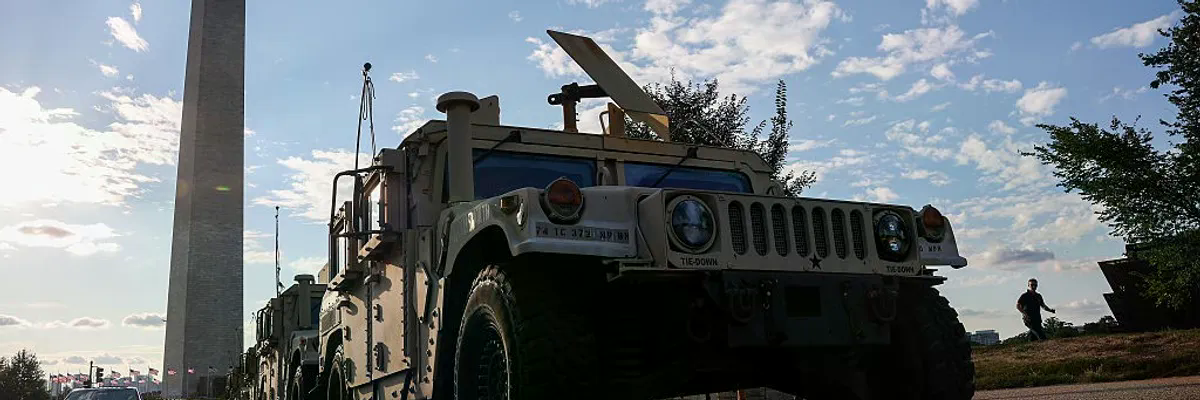
There is a mixed assessment for critics of the United States’ expansive military apparatus in the 21st century. The positive development is that the “war on terror” appears to be officially over. However, the negative implication is that this conflict has taken on a new, persistent form—resembling a “zombie war” that continues to evolve and expand, even as the original motivations for its creation have faded from public consciousness.
Several examples illustrate this shift. Despite evidence revealing the Saudi government’s direct involvement in the September 11, 2001 attacks—a pivotal event that justified much of the post-9/11 military actions—associating with or accepting financial support from the country remains socially acceptable. The Biden administration’s decision to defend the Saudi government drew minimal public backlash. Additionally, prominent U.S. comedians, spanning ideological spectrums, have accepted funds from the government to enhance its image, reflecting a broader acceptance of its influence in American cultural sectors.
In another instance, the U.S. government has seemingly reconciled with al-Qaeda’s continued presence in the region. It has supported the appointment of Ahmed al-Sharaa, an al-Qaeda-linked militant, as the leader of Syria. This comes despite Washington’s prior efforts to remove his predecessor, who was accused of supporting terrorism, including ties to al-Qaeda.
While Donald Trump may be the first president to repurpose the “war on terror” for purposes it was never intended for, historical patterns suggest this trend could persist unless there is a collective political effort to curb the growing executive authority over military action that has accumulated since 9/11.
Ahmed al-Sharaa, previously designated as a terrorist and subject to a $10 million bounty, saw the removal of these designations. Recently, he received a warm reception at the United Nations General Assembly, where former CIA Director David Petraeus acknowledged their past adversarial relationship before expressing admiration for him.
The expansion of the “war on terror” is not limited to foreign adversaries. The Biden administration explored collaboration with the Taliban to combat ISIS in Afghanistan, while the Trump administration has moved toward normalizing relations with the group. This marks a significant shift, given that the Taliban’s association with al-Qaeda was once a central justification for the U.S. invasion of Afghanistan, which ultimately resulted in the group reclaiming power.
These developments indicate that both the American public and the national security establishment have largely moved beyond the original justifications for the “war on terror.” Al-Qaeda, the Taliban, and the forces behind the 9/11 attacks no longer hold the same level of significance in public discourse.
Despite this, the “war on terror” persists and is being adapted in unprecedented ways. The Trump administration has begun applying counterterrorism tactics against drug traffickers, launching airstrikes on private Venezuelan vessels under the claim that drug smuggling constitutes an “armed attack” against the United States. These actions raise legal and ethical concerns, particularly regarding the broad use of the term “terrorist.”
Moreover, the administration has escalated the domestic application of the “war on terror,” threatening to deploy the military against perceived internal threats. This includes labeling certain domestic groups as terrorists for engaging in First Amendment-protected activities and creating secret watchlists of individuals considered potential domestic extremists.
This evolution aligns with warnings from civil libertarians over the past two decades about the misuse of expanded executive powers initially granted during the Bush and Obama administrations. These powers were originally meant to address terrorism but have since been applied in ways that threaten civil liberties and political dissent.
What is particularly concerning is that this transformation is occurring at a time when the original threats that justified these measures are being increasingly forgotten. The “war on terror” now exists in a zombie-like state—devoid of its original purpose but more dangerous than ever as it continues to expand without clear direction or accountability.
While Donald Trump may be the first to exploit this rebranded “war on terror” for unintended purposes, history suggests that future leaders may follow suit unless there is a decisive political movement to limit the unchecked growth of executive war-making powers. Until such a change occurs, this enduring and evolving conflict will continue to shape U.S. policy and global affairs.


